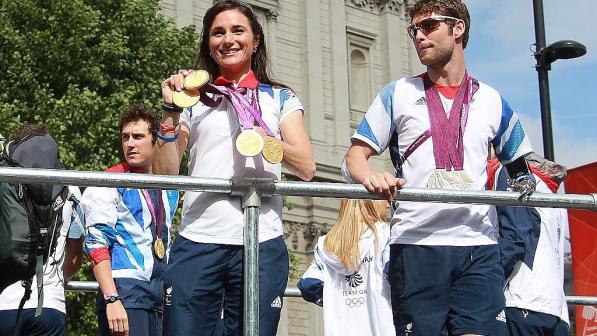Active travel and the energy equation

The culture, protocol and momentum of the report in general fascinate me.
Reports are being scoped, commissioned, researched, written, amended, stewed over and approved all the time. And then they’re let go (oh no!), launched, off into the world to make their mark.
Then what?
More than likely, a report will say "The Government should …’" several times and, if it’s lucky, it’ll make more than a short sharp stir and the Government will, indeed, at some point oblige. Or not.
So, how about a report that starts: “The international community is waking up to the urgency of the climate and environmental crisis”?
And goes on to say: “In the transport sector, the top priority should be to reduce the need to own and drive cars, by facilitating shared mobility, walking and cycling, and by improving public transport. Transport and planning objectives should also be aligned to avoid the need to make so many journeys”?
And what about a report citing a separate review that values the annual health benefits of shifting just 1.7% of car journeys to active travel at £2.5billion?
For Cycling UK, a ‘Government should…’ report like this is always to be feted, realised and never forgotten.
I’m pleased to say that, thanks to the Green Alliance, we have the very thing in Balancing the energy equation, published this week to explain the urgency of reducing demand for energy in transport, buildings and industry.
Energy efficiency, it says, is not only economically sound, but “has other, considerable benefits, including cleaner air, improved comfort in homes and public spaces, better health and new employment opportunities.”
Cycling UK totally agrees. We too want the UK Government to meet its greenhouse gas emissions targets – net zero by 2050, and don’t like to see the House of Lords appending a ‘regret motion’ to climate change legislation, expressing concern over the “little detail” provided on how the targets will be met.
To translate Green Alliance’s thesis into campaigning terms specific to us, we say: “The Government should invest in walking and cycling; it's part of the equation. This means allocating at least 10% of transport funding to active travel so that plans for ambitious, high quality infrastructure can flourish everywhere."
This is crucial. Only this week, The Mayor of Greater Manchester, Andy Burnham and Chris Boardman, the region's Cycling and Walking Commissioner, announced that Transport for Greater Manchester’s Bee Network would be ‘hamstrung’ without guaranteed government investment.
It's incredible that the penny hasn’t dropped yet. Getting more people moving more actively is such a quick, comparatively cheap, and easy way to help tackle climate change, air pollution, inactivity related public health and congestion related crises that it begs the question: why wouldn’t you do it?
Duncan Dollimore, Cycling UK Head of Campaigns.
The Green Alliance has rightly piled another emphatic, urgent and persuasive report on what must surely be an escalating pile of other emphatic, urgent and persuasive ‘Government should …’ reports that deserve a future for everyone's sake.
Now what?
Well, there's a Westminster Hall debate on Net zero targets and decarbonsing transport on 4 February, and the Budget's on the way on 11 March.
But it's not just "over to the Government".
We'll be making submissions to the Treasury next week, and providing guidance to help Cycling UK's members and supporters make it clear to their MPs that active travel will help solve our current crises.
With your backing, then, Green Alliance's recommendations on active travel stand a much better chance of a life after launch.


